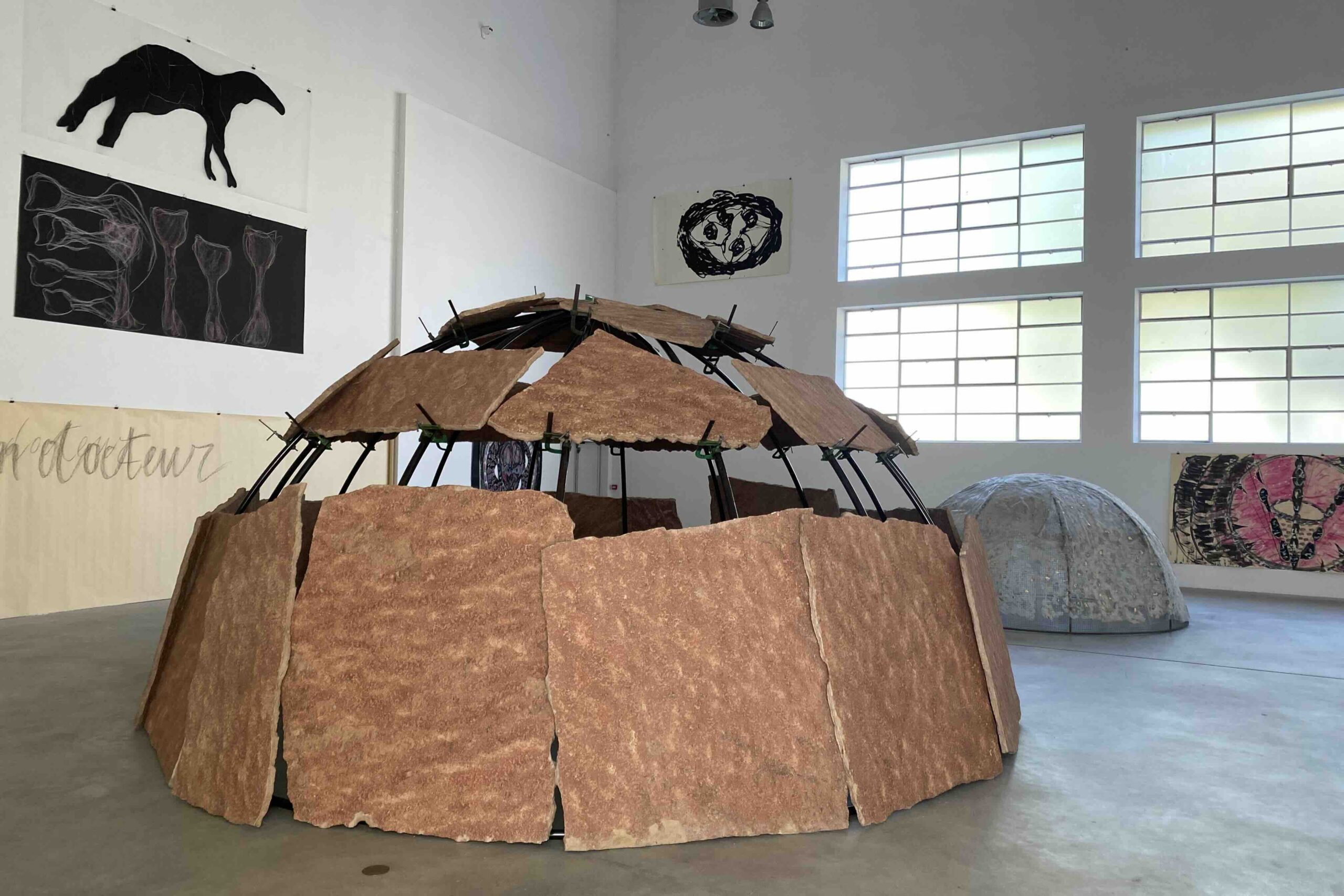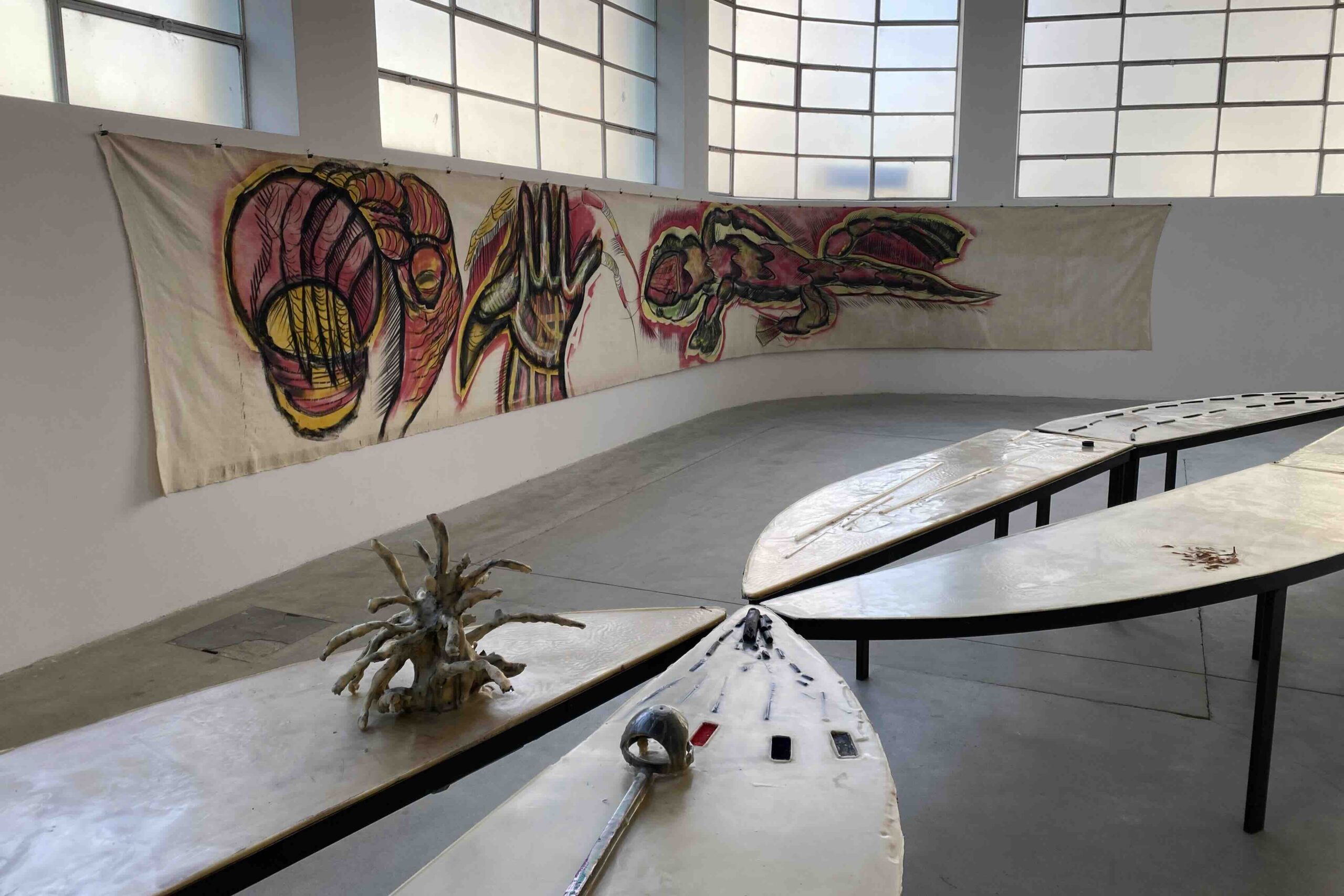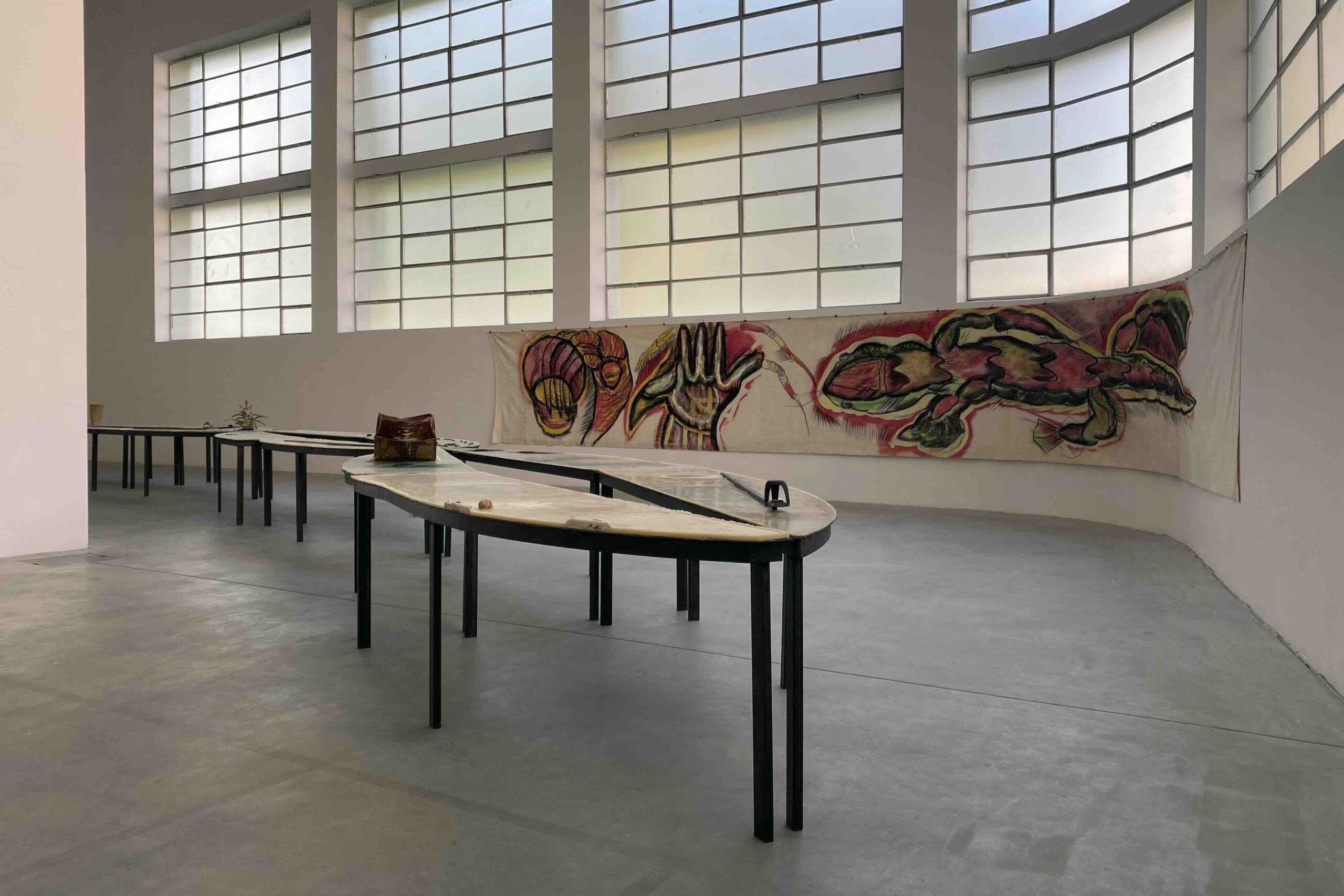Mario Merz. Qualcosa che toglie il peso che mantiene l’assurdità e la leggerezza della favola
Fondazione Merz, Turin
From October 28th, 2024 until February 2nd, 2025
Mario Merz, one of the most influential figures in Italian Arte Povera, was born on January 1, 1925. Nearly a century later, the Fondazione Merz honours its founder with a two-part exhibition. The first chapter unfolded last summer; the second opened on October 28th and runs until February 2025. The title, Something that removes the weight that retains the absurdity and the lightness of the fable (Qualcosa che toglie il peso che mantiene l’assurdità e la leggerezza della favola), might sound like a philosophical tongue-twister – but it’s a direct quote from Merz himself: “I would like to have the signature of someone who has been cured by proliferation. Something that removes the weight… I think of numbers one after the other in a proliferating expansion… They are a flying carpet on which to live… That retains the absurdity and the lightness of the fable…” Merz, here, is talking about that delicate, impossible balance between heaviness and lightness, structure and freedom, the absurd and the profound.
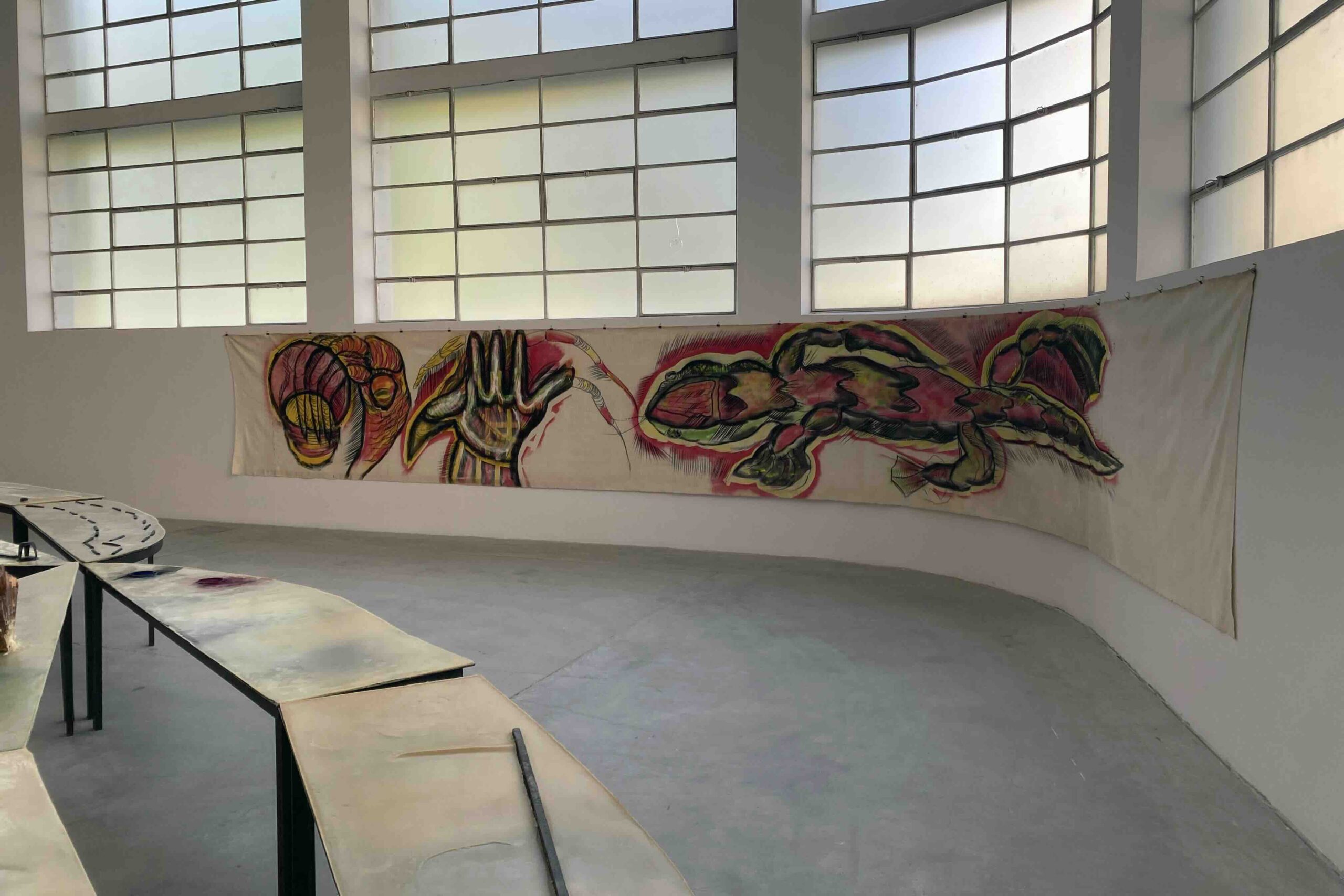
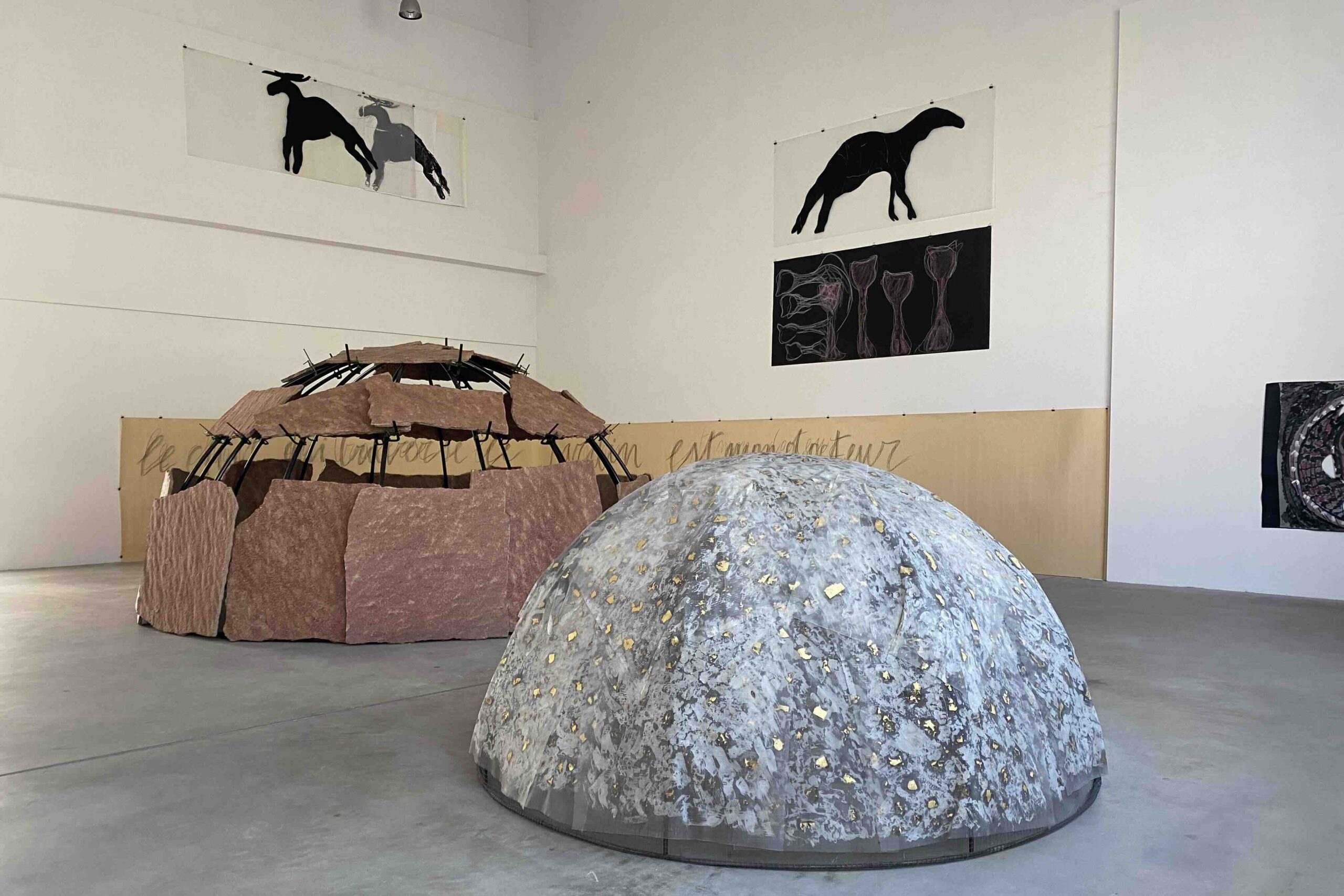
This second chapter of the show presents a vast array of installations, igloos, tables, paintings, and works on paper. The first room introduces Merz’s igloos – signature metal pipe structures dressed in everything from mud and fabric to sand, branches, and even food. In the exhibition three versions are presented: one draped in stones, another in gold leaves (last shown nearly twenty years ago), and a third (in the second room) entirely covered in loaves of bread. These igloos are Merz’s meditations on individuality, community, the outside world versus the inside, and our shared, primal needs. Dominating the room, these imposing, almost otherworldly domes transform the space into a surreal sanctuary. Drawings and paintings swirl around them – natural forms, animal shapes, and portals to realms both familiar and foreign. Merz invites viewers to step into a dream where nothing is quite what it seems, but everything feels strangely necessary.
At the heart of the exhibition is Quattro tavoli in forma di foglie di magnolia (1985), making its European debut. Originally conceived for solo exhibitions at Sperone Westwater and Leo Castelli in the U.S., this work presents the table as a symbol of hospitality, sustenance, and domestic ritual. The magnolia leaf shape, combined with the wax surface, recalls floating fronds. From this seemingly soft and fluid material, organic forms emerge – paused branches, leaves, bursts of colour, and a binder overflowing with wax, as if they were the remnants of an everyday dining table. The blending of natural and structural elements here is a study in contrasts – the softness is paradoxically made permanent by the hardening wax, creating an eternal moment of suspended fluidity.
In the same room, Merz’s raw, almost instinctive brushstrokes animate the canvases, which hang like banners in an untamed, free-spirited kingdom. These works – saturated with the energy of the natural world – are wild in both form and spirit, a reflection of Merz’s ever-present quest for something deeper, something beyond the constraints of time and society.
Merz’s art reveals a primal, universal truth, yet remains steeped in the dreamlike and the otherworldly. The Italian writer Elsa Morante once wrote, “Could the secret of art lie here? To remember how the work was seen in a state of dream, to tell it again as it was seen, to try above all to remember. For perhaps all invention is remembering.” This is precisely what Merz achieves – an act of invention rooted in memory, where raw, natural imperatives converge with fleeting, tangible dreams. It pulses through his installations, igloos, tables, paintings, and works on paper – offering not just reflections of the world, but a way to inhabit it, to remember it, to dream it back into being.
For further information fondazionemerz.org.
